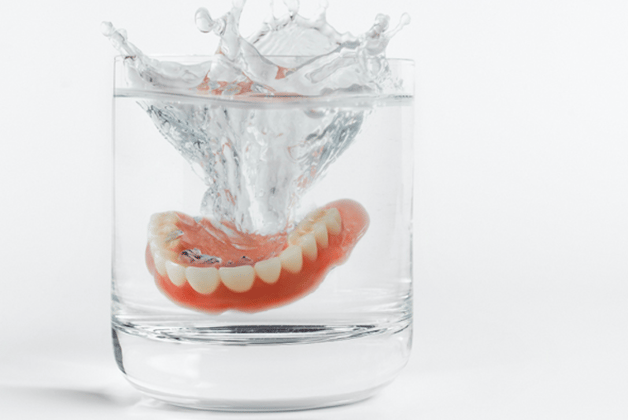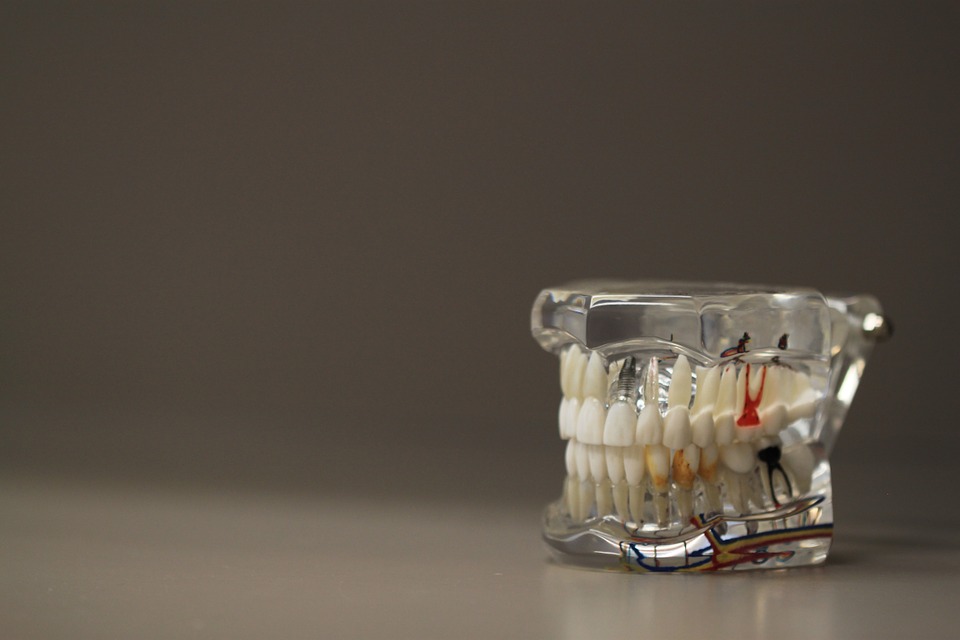
Read on for some interesting facts about dentures
To people who haven’t experienced dentures themselves, there are plenty of ideas and myths that come to mind when that word comes up in the dentist’s chair.
Dentures are less common today than they were just a few decades ago, so younger generations may be more prone to misunderstanding how dentures work and what they can expect from wearing them. In addition, modern dentures are very different from the dentures your grandparents or their grandparents wore.
We’ll dive a little deeper into four specific facts about dentures — and people with dentures — that you may not know and clear up some of these misunderstandings along the way.
1. There are young people with dentures
One of the most common misconceptions is twofold:
- Young people (say, under 65) don’t need to wear dentures, and
- Old people (65 and older) all need dentures.
Neither of these statements are true.
"There are plenty of ideas & myths we have when that word comes up in the dentist’s chair."
Dentures are recommended by dentists if and when a person’s natural teeth have sustained injury, decay, or some other damage to the extent that they can no longer function effectively without causing pain or otherwise affecting the person’s quality of life.
This can happen to anyone at any time. It has less to do with age and more to do with the condition of a person’s natural teeth. Granted, the older you are, the more opportunity your teeth have had to get injured or to develop severe yellowing or decay that could lead to the need for dentures. But, dentures for young adults are certainly not unheard of.
2. Dentures are less common today than they were 50 years ago
Many decades ago, good oral health was a lesser-known aspect of healthcare and people primarily visited the dentist to have teeth pulled when they caused pain. As a result, many ended up without their natural teeth and there were far more people with dentures.
In recent years, this situation has changed, as proper brushing and flossing are far more common and routine dental checkups and cleanings are an annual or semiannual occurrence for many people. As a result, there are far fewer people with dentures today than there was years ago.
Fluoridated municipal water is a factor as well, as it’s served to strengthen the teeth of many people today.
3. Dentures can actually be very discrete
For many people, the idea of wearing false teeth can be scary or embarrassing. They assume that the dentures will be highly noticeable and look unnatural. This can be an especially traumatic thought for young people with dentures.
However, modern high-quality, custom-built dentures can be molded exactly to your jaw and gum line, and look very natural. With proper care and a little bit of experience, eating, drinking, talking, and even kissing with dentures can look and feel completely natural.
4. Dentures don’t last forever or eliminate the need for a dentist
Rather than fearing or trying to avoid wearing false teeth, some people view dentures as a cure-all for a long history of oral health problems and expensive dental care. But that’s not the right view either.
While removing natural teeth and replacing them with dentures does remove the possibility of tooth-related pain and disease, it is still possible for gums to become sore or to develop periodontal disease. Dentures will still collect plaque like natural teeth, and if not properly cared for, this can harden into tartar, affecting the appearance of dentures.
While you may not need your dentist to clean your teeth twice a year anymore, all the other aspects of a semiannual oral health checkup are still valid, so it should not be missed. In addition, a dentist will want to test the fit of the dentures and make any necessary adjustments to help maintain a clean and comfortable fit for as long as possible.
Dentures can look very natural and do an excellent job of simulating the functionality of natural teeth, but the material they’re made from is softer than enamel and dentine and it does wear out. Depending on the type of dentures and how well they are cared for, they will usually serve their purpose for 5-10 years before needing to be replaced.
Related content: Time for Dentures? Here’s Everything You Need to Know
Bonus fact: Keeping your natural teeth is always the better option
While wearing dentures is an excellent solution to many oral complications, they’re truly no match for your natural teeth.
Dentists will typically recommend caring for and keeping your natural teeth as long as possible before suggesting to go with dentures. This is because your natural teeth, when properly cared for, can usually serve you well your entire life. Ultimately, they cause less discomfort and inconvenience, and require less maintenance than dentures.
There’s also the cost of dentures to consider:
Lower-cost options will cost $300 - $500 per denture, or twice that for a complete set. More advanced options can cost $500 - $1500 per denture or twice that per set. These price ranges normally don’t include the cost of appointments or x-rays, so it’s important to take those expenses into account as well.
While insurance may partially cover low-cost dentures for medical purposes, if you need a more premium option or more extensive services, you could face an overwhelming dental bill. Having a dental insurance alternative available can save you a lot in the long run, especially if your perfect match for dentures isn’t covered.
Need dentures for less? Join Dental Solutions for up to 50% off!
So, we’ve covered four facts about dentures you may not have known. We’ve learned that dentures aren’t just for old people, but young people with dentures is a thing too. We’ve learned that modern dentures are less common — since overall oral health is so much better than it was — and less noticeable than dentures from years ago. And, we learned that even the finest dentures won’t last forever because they’re simply not as good as your natural teeth.
If your dentist has brought up the idea of dentures to you, sit down with them and ask any questions that come to mind. Then, when you’re ready to move forward with your new dentures, use our dental discount card to get dentures for less.




